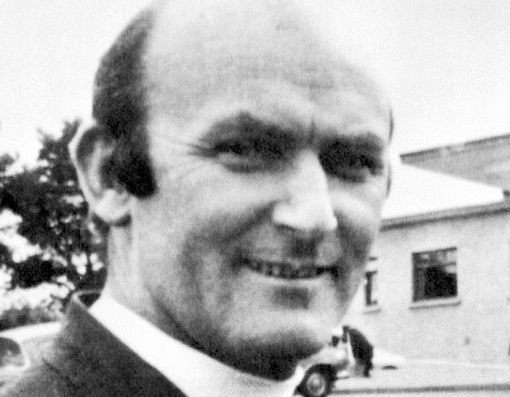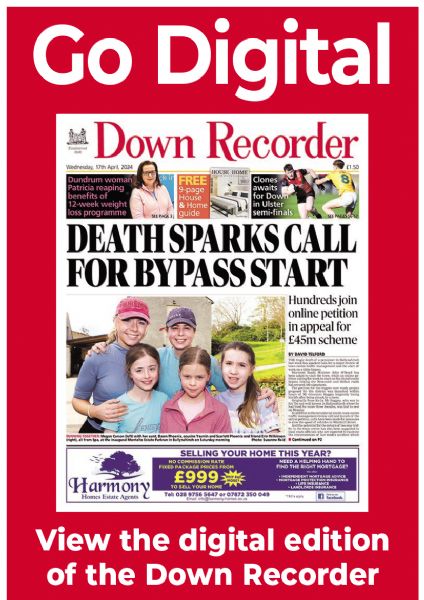Portaferry woman hits out at plans for Troubles amnesty
Portaferry woman hits out at plans for Troubles amnesty
28 July 2021

THE niece of a Portaferry priest killed in the Ballymurphy Massacre said a proposed ban on Troubles prosecutions would “pile injustice on top of injustice”.
Geraldine McGrattan spoke out after MLAs joined together last week to unanimously reject the government’s statute of limitations proposals.
Her uncle, Fr Hugh Mullan, was fatally wounded by soldiers as he tried to give a wounded man the last rites in west Belfast in August 1971.
An inquest ruled in May that Fr Mullan was an “innocent peacemaker” after initial Army reports at the time said that he had been carrying a weapon.
Secretary of State Brandon Lewis announced earlier this month his plans to introduce legislation to create a proposed statute of limitations which would end all prosecutions for incidents up to April 1998 and would apply to military veterans as well as ex-paramilitaries.
The proposals, which Prime Minister Boris Johnson said would allow Northern Ireland to “draw a line under the Troubles”, would also end all legacy inquests and civil actions related to the conflict.
However, the news has shocked Mrs McGrattan and her uncle, Patsy Mullan, who attended the controversial inquest and were present at the recent ruling.
“It makes little of the deaths of all those who died in the Ballymurphy Massacre,” she told the Recorder.
“Boris Johnston has said he wants to bring in this amnesty to draw a line for victims. You can’t draw a line under the loss of someone who died in violent circumstances. He is piling injustice on top of injustice.”
Mrs McGrattan said that while her family eventually got the truth about how their beloved family member died, she was devastated for other families still waiting for truth and justice.
“It just breaks my heart when I think of the children, mothers and fathers and young men and women who lost their lives. There will never be a proper investigation into how they died. My heart really breaks for their families,” she said.
“It doesn’t what side of the community you come from, your grief at losing somebody in a violent situation is just dreadful. When you don’t know how they died or why they died, or the information you get at the time is so sparse, proper investigations and new investigations into their death is so important to help you come to terms with it.
“It’s a disgrace that so many families are going to be left in the dark about what happened if there are no investigations. I really hope that this law does not go through.”
Mrs McGrattan acknowledged that the handling of the Troubles’ investigations were particularly sensitive to those families who had lost a relative.
“No one really knows how a family who has lost someone to the Troubles feels. I understand how some English people may think, ‘Why can’t they just move on and get on with it?’ But you hand your grief down to your children, it goes right through families, all the wondering and the questioning.
“You can’t just say alright, you committed a crime but as it was before 1998, we will just brush it under the carpet.
“With any death, you question the last moments of your loved one but with violent, sudden death where his life has been taken by someone else, you always want answers and that’s why you can’t let it go.”
She also spoke of how her uncle’s example and faith helped her family deal with his death over the years.
“I’ve always talked to my uncle Hugh who’s been a solid rock for me through the 50 years. He was a good Christian Catholic priest and I often think, how would he feel?
“He wouldn’t have wanted retribution or anything like that and his attitude would have been one of forgiveness, but it’s so hard.”

